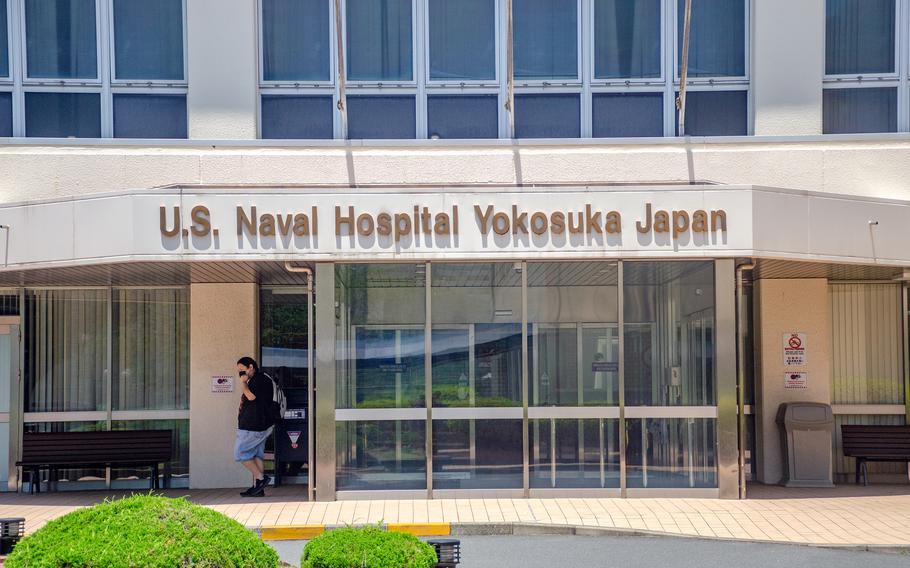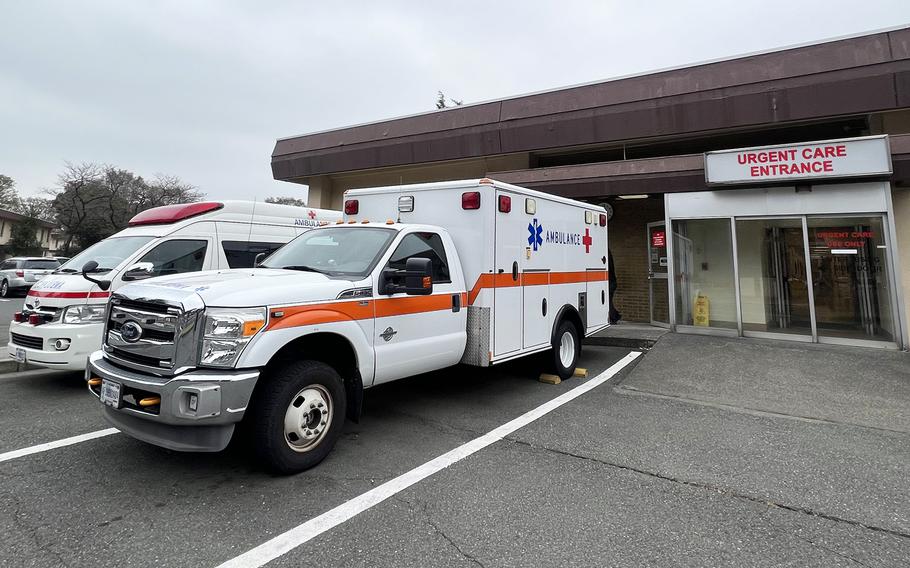Asia-Pacific
Military hospitals still chasing bugs out of $4.3 billion digital health records system
Stars and Stripes February 2, 2024

U.S. Naval Hospital Yokosuka, pictured here in June 2023, serves patients at Yoksuka Naval Base, Japan. (Jennessa Davey/Stars and Stripes)
YOKOTA AIR BASE, Japan — Three months after Military Health System Genesis debuted at military hospitals in Japan, the digital recordkeeping and appointment system’s shortcomings are leaving some patients and medical professionals frustrated.
Patients at most bases in Japan have been unable to use MHS Genesis to book visits at local clinics since the system came online in October, said Maj. Mark Pomerleau, the officer responsible for its installation at Yokota Air Base, the home of U.S. Forces Japan in western Tokyo.
That function, which requires patients to search by their primary care manager or appointment type, was deliberately disabled at many hospitals in Japan because of the added work it caused.
“It lets you select any provider in the world, which, as you can imagine, is hundreds if not thousands,” Pomerleau, chief nursing informatics officer for Yokota’s 374th Medical Group, told Stars and Stripes on Jan. 23.
“If we were to enable online booking, a patient in Alabama or Germany could book appointments in our slots,” he added.
Medical facilities at Yokosuka Naval Base, Sasebo Naval Base and Marine Corps Air Station Iwakuni have also disabled the appointment function, Yokosuka Naval Hospital spokesman Daniel Taylor said an email Friday.
The hospital is working with MHS Genesis’ deployment team to open online appointments as soon as possible, Taylor wrote. “We apologize for any inconvenience and hope to have this option available soon,” he said.
MHS Genesis became operational at military bases in the Pacific Northwest in 2017, followed by elsewhere in the United States and then European bases last September.
Indo-Pacific bases began implementing the system in October. By Jan. 13, installation was completed for Guam, its final overseas location, according to an email Thursday from Defense Health Agency spokesman Peter Graves.

Japanese and American ambulances park outside the 374th Medical Group building at Yokota Air Base, Japan, in March 2023. (Kelly Agee/Stars and Stripes)
In Genesis’ early days in Japan, staff spent “a considerable amount of their day scrubbing their appointments to figure out if the patient belongs with their clinic and making a lot of phone calls, which causes a lot of headaches for the staff,” Pomerleau said.
A fix is in the works, Pomerleau said, but he had no information on how long that’s expected to take.
Graves said the problem with the appointment function is part of an adjustment period.
“Each military hospital and clinic choose when they are ready to implement that capability once local conditions are properly set to accommodate online booking,” he said. “This is a normal part of the MHS Genesis deployment.”
MHS Genesis was developed as a “state-of-the-market electronic health record system” for the Military Health System under a $4.3 billion contract signed in 2015 with Leidos Partnership for Defense Health. The partnership includes the Leidos, Accenture, Oracle and Henry Schein One corporations.
The system’s rollout was delayed while the Defense Department reviewed and tested it for functionality and cybersecurity, according to a November 2016 health.mil newsletter, The Scope.
Among other improvements, MHS Genesis has smoothed communication between patients and medical care providers through its patient portal, Pomerleau said.
But a military spouse who visited Naval Hospital Yokosuka at the Navy base south of Tokyo on Jan. 4 said the system slowed health care providers’ response to her medical emergency.
At every step, an MHS Genesis problem popped up, said the spouse, who spoke to Stars and Stripes on condition of anonymity to discuss a personal health matter.
The woman arrived at the hospital with abdominal pain, she said by phone Jan. 25. She required surgery, but getting checked in and provided the appropriate pain relief after surgery was complicated by MHS Genesis, she said.
“I was up in the recovery room and in a tremendous amount of pain,” she said.
The medical staff was trying to help, the woman said, but MHS Genesis seemed to be crashing or refusing to accept her information.
“I got to the point where I looked at [the medical staff]. They’re like, ‘We’re trying to get into the system and it’s just not registering it. We’re trying to get it set up so that it will give us the medication to put into it.’ ”
“And I was like, ‘Please … I can’t take this pain.’ It was horrible,” she said.
She was accompanied that day by friend Alexandra Cummings, the spouse of a Navy contractor at Yokosuka.
“Thankfully, she was one of the only patients there, but I can’t imagine on a busy night if you have three or four people having medical issues, and you can’t get the medications,” Cummings said by Facebook Messenger on Jan. 19. “It felt like Genesis was sucking up time and energy from intelligent, skilled professionals.”
In response, Taylor said laws governing patient confidentiality forbid the naval hospital from discussing the woman’s case. But the hospital delivers health care according to U.S. medical standards “and the health and wellness of every patient is our priority,” he said.
Cummings previously worked for a company that made software for the government. Software updates like Genesis come with “a certain amount of difficulty with transition and training,” she said.
“To me, the company needs to work on that user interface so that it behaves in a way that does the job in the way that the professionals that are using it expected it to,” she said.
Stars and Stripes reporter Jonathan Snyder contributed to this report.